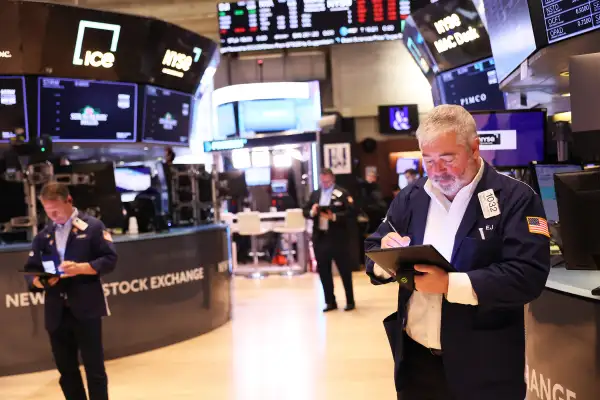Stock Market Outlook: After Fed’s Rate Hike, Investors Eye Inflation and Regional Banks
Money is not a client of any investment adviser featured on this page. The information provided on this page is for educational purposes only and is not intended as investment advice. Money does not offer advisory services.

The past week has been a busy one for the markets. The Federal Reserve hiked interest rates another quarter of a percentage point, companies continued to report their earnings from the first quarter of the year, and regional banks became a focus for investors.
What's next?
Now that the majority of key earnings reports are out, the market will be more focused on the macroeconomic picture for the foreseeable future, says Todd Jones, chief investment officer at Gratus Capital. The key driver, he says, will be how the situation with the regional bank system unfolds — and if there is another shoe to drop.
Here’s what investing experts will be watching the week of May 8:
Regional bank stocks have been in turmoil amid widespread fear about the stability of the banking sector. For example, he stock price of PacWest Bancorp — a regional bank based in California — plummeted more than 50% on Thursday, continuing a selloff that began earlier in the week.
Investors will be monitoring U.S. banking sector developments very closely over the next several days, since the recent events caused a renewed selloff in bank stocks and more volatility across the markets, says Phillip Colmar, managing partner and global strategist at MRB Partners, an independent investment research firm.
There's also fear around whether or not more banks will get caught up in the turmoil.
"The question of 'who’s next' is an important one to consider," Jones adds.
Inflation data
When the Fed hiked interest rates during its most recent meeting amid its ongoing battle with inflation, it also signaled that rate increases could now be on pause.
That's not at all guaranteed, but just the fact that the central bank is no longer saying it anticipates more hikes is significant news for investors, since rate hikes weigh on the financial assets like stocks. Sam Stovall, chief investment strategist at research firm CFRA, tells Money that looking at the Fed's moves since 1989, the S&P 500 gained an average of 13% during the time between the last rate hike and first rate cut. The S&P gained in price in five out of six of those periods, too.
The Fed didn't set the stage for a cut this year — Stovall says the first decrease in rate hikes may not come until 2024 — but the Fed and investors alike will continue to keep a close eye on economic data to glean insight into whether or not more rate hikes will be needed.
That data includes the April core consumer price index (CPI), which is a closely-watched inflation measure and will be released by the Bureau of Labor Statistics on Wednesday.
"Core price pressures have proven sticky so far and are likely to remain so unless the economy is heading into recession and employment and wages soften noticeably," Colmar says.
Another inflation gauge, the producer price index (PPI), which measures the costs of goods and services in the eyes of producers, will come out Thursday. And on Friday, May 12, the Michigan Sentiment Survey, will give investors a read on how confident consumers are feeling about the U.S. economy.
Regional Bank Stocks Are in Turmoil. Is It a Buying Opportunity for Investors?

